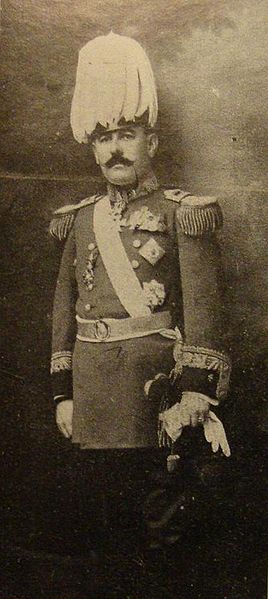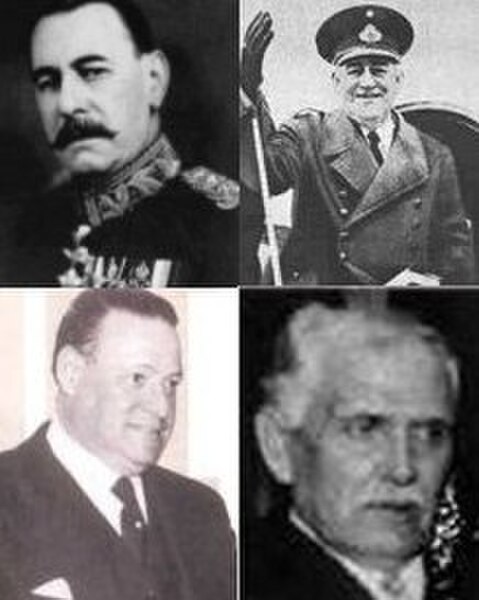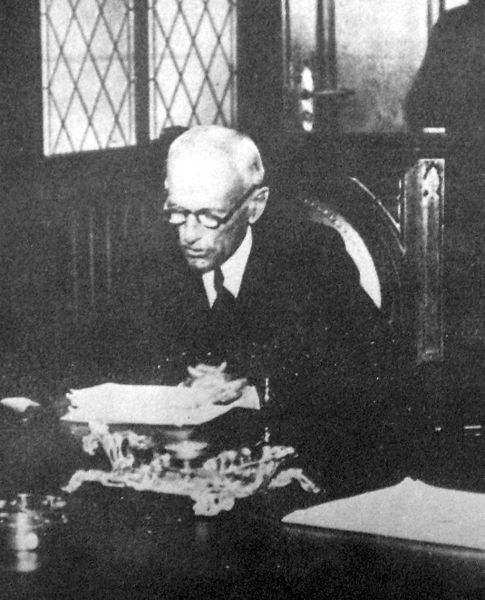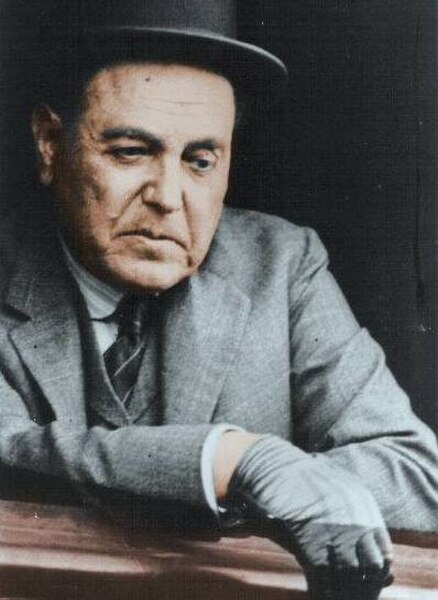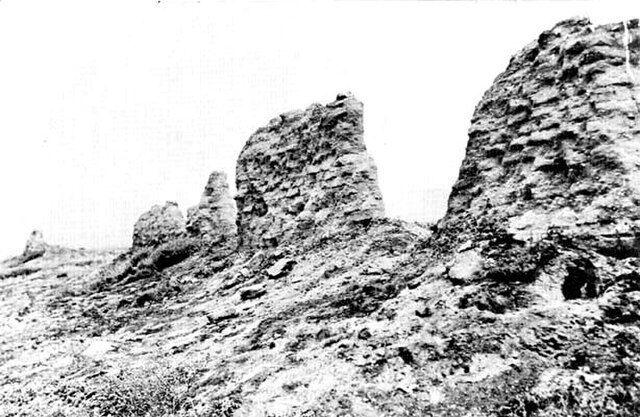Lieutenant General José Félix Benito Uriburu y Uriburu was the President of the Provisional Government of Argentina, ousting the successor to President Hipólito Yrigoyen by means of a military coup and declaring himself president. From 6 September 1930 to 20 February 1932, he controlled both the Executive and Legislative branches of government. As "President of the Provisional Government," he acted as the de facto Head of state of Argentina. His was the first of a series of successful coups d'état and unconstitutional governments that came to power in 1943, 1955, 1962, 1966, and 1976.
José Félix Uriburu and Agustín Pedro Justo
José Félix Uriburu, wearing a Gala uniform and the Presidential Sash
The four Argentine presidents of the Infamous Decade: José Félix Uriburu, Agustín P. Justo, Roberto Ortiz, and Ramón Castillo
Ernesto Bosch, Minister of Foreign Affairs under President Uriburu
Juan Hipólito del Sagrado Corazón de Jesús Yrigoyen was an Argentine politician of the Radical Civic Union and two-time President of Argentina, who served his first term from 1916 to 1922 and his second term from 1928 to 1930. He was the first president elected democratically by means of the secret and mandatory male suffrage established by the Sáenz Peña Law of 1912. His activism was the prime impetus behind the passage of that law in Argentina.
Yrigoyen c. 1926
Constitution Plaza station in 1920. Yrigoyen lived on the nearby Avenida Brasil until his death in 1933. Years later, his house was demolished to make way for the Arturo Frondizi Highway
Ruins of Las Flores estancia, nearby one of Yrigoyen's properties
Plaque in the Constitución neighborhood of Buenos Aires, where Yrigoyen's house was located


